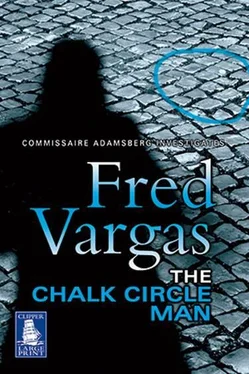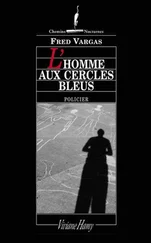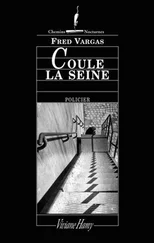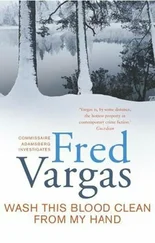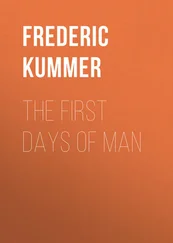‘So it’s as if the circle was drawn first, is that what you mean? And then the murderer arranged the body inside it?’
‘Looks a bit like that. But that seems stupid, doesn’t it? Danglard, would you go and check all this out with the scene-of-crime people and with the graphologist – Meunier, I think he’s called. This is where Conti’s photos are going to help us, and so will the dimensions of all the previous circles and the chalk samples you collected. We’ll have to compare them all with this new circle. We have to find out whether it’s the same man who drew it, and whether he drew it before or after the murder. Delille, can you follow up this lady’s address, her neighbours, friends and contacts? Castreau, check her place of work, if she had one, who her colleagues were, and what her income was. Nivelle, you take the family side of things, any family quarrels, inheritances, love affairs.’
Adamsberg had spoken without haste. It was the first time Danglard had seen him giving orders. He did so without seeming either self-important or apologetic about doing so. It was an odd thing, but all the inspectors seemed to be becoming porous, letting Adamsberg’s way of behaving seep into them. It was like being caught in the rain when your jacket can’t help absorbing water. The inspectors were becoming damp and without realising it they were imitating Adamsberg; their movements were slower, they smiled more, and were absent-minded. The one most altered was Castreau, who as a rule liked the gruff, manly responses their previous commissaire had expected of them, the military commands barked out without any superfluous commentary, the ban on looking to either side, the slamming of car doors, the fists clenched in the tunic pockets. Today, Danglard hardly recognised Castreau. He was leafing through the victim’s pocket diary, quietly reading out sentences to himself, glancing attentively at Adamsberg, apparently considering every word, and Danglard thought to himself that he might be able to confess to him his problems about corpses.
‘If I go on looking at her, I’ll be sick,’ Danglard said to Castreau.
‘It gets me in the knees. Especially women, even women like this one, nothing much to look at.’
‘What are you reading in the diary?’
‘Listen: “Had a perm, but I’m still ugly. Papa was ugly, so was Maman. Why would I be any different? A customer came in for blue mohair but I didn’t have any left. Another bad day.”‘
Adamsberg watched the four inspectors get back in the car. He was thinking about his petite chérie , Richard III and the lady’s diary. Once the petite chérie had asked him: ‘Is a murder like a packet of spaghetti that’s all stuck together? You just have to put it in boiling water for it to come untangled again? And the boiling water’s the motive?’ and he had replied: ‘No, what gets it untangled is knowledge, you just have to let the knowledge come to you.’ She had said: ‘I’m not sure I understood that’, which was fair enough, since he didn’t really understand it himself.
He waited for the police doctor, who was still grumbling away, to finish his preliminary check of the body. The photographer and the scene-of-crime people had already left. He stood alone, looking down at the lady on the ground, with the stretcher team waiting nearby. He hoped that a little knowledge would come to him. But until he came face to face with the chalk circle man, he knew it wasn’t worth racking his brains. He just had to keep on picking up information, and for him information had nothing to do with knowledge.
SINCE CHARLES SEEMED TO BE FEELING BETTER ABOUT THINGS, Mathilde decided that she could count on a peaceful quarter of an hour during which he wouldn’t try to reduce the universe to shreds, and that she would therefore be able to introduce him to Clémence that evening. She had asked the elderly Clémence to stay behind in the flat for the occasion, and had taken some pre-emptive action by warning her emphatically that the new tenant was indeed blind, but that it would not do either to exclaim, ‘Oh my sakes, what a terrible affliction!’ or to pretend complete ignorance.
Charles heard Mathilde introduce him and listened to Clémence’s greeting. From her voice, he would never have imagined the naive woman whom Queen Mathilde had described to him. He seemed to hear fierce determination, and weird but recognisable intelligence. What she actually said seemed silly, but in the intonations behind the words there was some secret knowledge, caged but breathing audibly, like a lion in a village circus. You hear it growling in the night and tell yourself this circus isn’t what you thought, it isn’t quite as pathetic as the programme might make you think. And Charles, the expert on sounds and noises, could quite distinctly hear this distant growling, a little unsettling since it was possibly concealed.
Mathilde had offered him a whisky and Clémence was telling him about the incidents in her life. Charles was troubled, because of Clémence, and happy because of Mathilde. A divine creature who was quite indifferent to his nastiness.
‘… and this man,’ Clémence was saying, ‘anyone would think he was really nice! He thought I was “interesting,” those were his very words. He never so much as touched me, but I guessed he would sooner or later. Because he wanted to take me on a trip to the South Seas, he wanted us to get married. Oh, my sakes, I was on cloud nine! He got me to sell my house in Neuilly, and my furniture. I put the rest of my things in two suitcases, because he said “You won’t want for any thing, my dear.” So I trotted along to our rendezvous in Paris, feeling so happy that I should have smelled a rat. I kept pinching myself and saying, “Clémence, old girl, it was a long time coming, but it’s happened at last, a real fiancé, and such a cultured man too, and now you’re going to see the Pacific.” Well, I didn’t see the Pacific, monsieur, I saw Censier-Daubenton metro station for eight and a half hours! I waited all day, and that’s where Mathilde found me, still at the metro station, in the evening, same place she’d seen me in the morning. She must have said to herself, my sakes, but something’s up with that old woman. Perhaps she’s jinxed.’
‘Clémence invents things, you know,’ Mathilde interrupted. ‘She reruns anything she doesn’t like. What really happened the night this famous fiancé stood her up at Censier-Daubenton was that in the end she went off to find a hotel, and going along my street she saw my “to let” sign. So she rang the bell.’
‘Well, maybe it could have happened that way,’ Clémence conceded. ‘But now I can’t take the metro at Censier-Daubenton, without thinking of the South Sea Islands. So there we are, I go travelling in the end. By the way, Mathilde, a gentleman telephoned twice for you. Very soft voice, I thought I’d faint listening to him, but I’ve forgotten his name. It was urgent, apparently. Something wrong.’
Clémence was always on the brink of fainting, but she might be right about the voice on the phone. Mathilde thought that it could have been that policeman, the half-weird, half-enchanting one she had met ten days earlier. But she could think of no reason why Jean-Baptiste Adamsberg should call her urgently. Unless he had remembered her offer to help him catch sight of the chalk circle man. She had proposed that on an impulse, but also because she would be sorry never to have an excuse in future to see this remarkable flic , who had been the real find of that day and who had saved the first section of her week at the last moment. She knew she would not easily forget him, that he was securely lodged somewhere in her memory, spreading his nonchalant luminosity. Mathilde found the number that Clémence had scribbled down in her cramped handwriting.
Читать дальше
